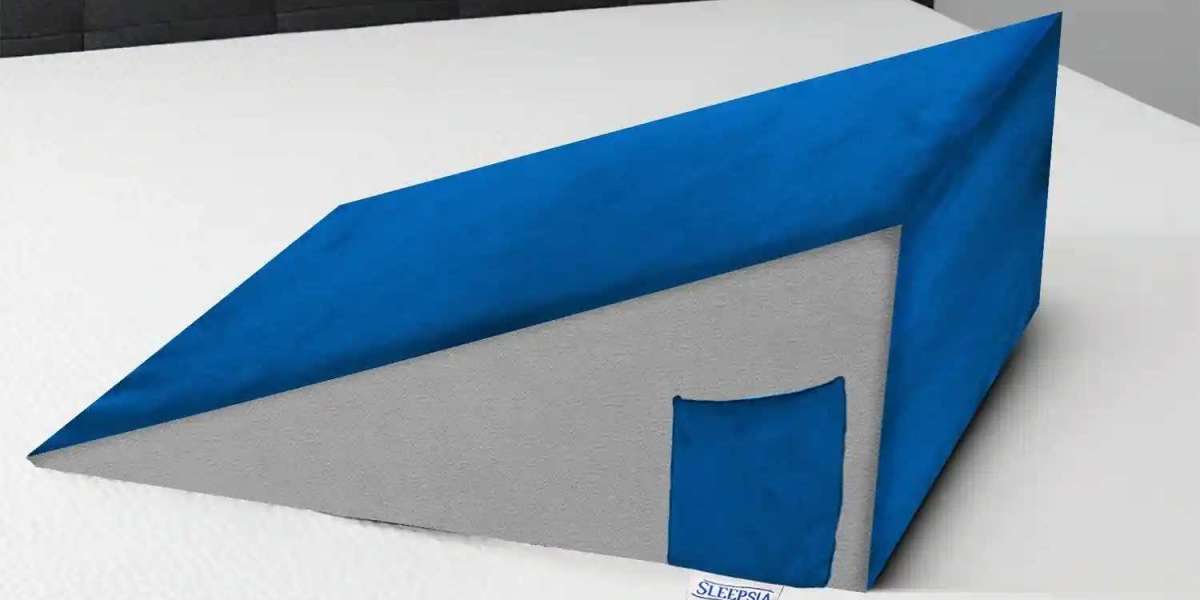If you’ve ever struggled with acid reflux, snoring, or back pain, you may have considered using a wedge pillow. These specially shaped pillows, sometimes called a triangle pillow or wedge cushion, are designed to provide elevation and support. Many people find them so comfortable that they wonder: Is it safe to sleep on a wedge pillow every night? The short answer is yes—in most cases, nightly use of a wedge pillow can improve sleep quality and overall health. Let’s explore the benefits, potential drawbacks, and tips for choosing the best wedge pillow for everyday use.
What Is a Wedge Pillow?
A wedge pillow is a firm, triangular-shaped cushion that elevates part of your body while sleeping. Unlike standard pillows, wedge pillows are angled, with heights usually ranging from 6 to 12 inches. The incline helps with various conditions, such as acid reflux, poor circulation, or respiratory issues, while also promoting better posture during rest.
Benefits of Sleeping on a Wedge Pillow Nightly
1. Reduces Acid Reflux and GERD Symptoms
By elevating the upper body, a triangle pillow prevents stomach acid from flowing back into the esophagus. Nightly use is often recommended for individuals who frequently experience heartburn.
2. Improves Breathing and Reduces Snoring
A wedge pillow helps keep the airway open by positioning the head and neck at an angle. This makes it effective for reducing snoring and easing mild sleep apnea symptoms.
3. Supports Spinal Alignment
Sleeping flat can sometimes strain the spine. A wedge cushion promotes proper alignment, reducing back and neck pain over time.
4. Enhances Circulation
When placed under the legs, a wedge pillow encourages healthy blood flow, reduces swelling, and relieves pressure on the lower back.
Are There Any Downsides to Nightly Use?
While sleeping on a wedge pillow every night is safe for most people, there are a few considerations:
- Adjustment Period: It may take time to get used to sleeping at an incline.
- Firmness Level: Some people find wedge pillows too firm compared to regular pillows.
- Sleeping Position: Side sleepers may need a shorter wedge height for comfort, while back sleepers may prefer taller inclines.
Overall, these minor adjustments are manageable, especially if you choose the best wedge pillow for your body type and needs.
How to Choose the Best Wedge Pillow for Nightly Sleep
- Height Angle: A 6–8 inch wedge is good for mild support, while 8–10 inches works best for acid reflux and snoring relief.
- Material: Memory foam wedge pillows provide firm, lasting support, while softer foam may feel more comfortable for beginners.
- Purpose: A triangle pillow for the upper body differs from a leg wedge pillow—make sure you pick one suited for your primary need.
- Size Portability: Some wedge cushions are large and cover half the bed, while others are compact and portable.
Conclusion
Yes—it is perfectly okay to sleep on a wedge pillow every night. Whether you’re managing acid reflux, snoring, or back pain, a triangle pillow or wedge cushion can provide consistent relief and comfort. The key is choosing the best wedge pillow that matches your health needs and sleeping style. With the right wedge, nightly use can lead to deeper rest and better overall well-being.
FAQs
Q1: Is it safe to use a wedge pillow every night?
Yes, wedge pillows are safe for nightly use and may even improve long-term sleep quality.
Q2: Can side sleepers use a wedge cushion comfortably?
Yes, but a lower incline (6–7 inches) is usually better for side sleepers.
Q3: What is the best wedge pillow height for acid reflux?
A wedge pillow with a height of 7–10 inches works best for reducing reflux symptoms.
Q4: Do wedge pillows help with snoring?
Yes. Elevating the head with a triangle pillow keeps airways open and reduces snoring.
Q5: Can a wedge cushion help with back pain?
Absolutely. Sleeping on an incline can relieve spinal pressure and ease discomfort.



